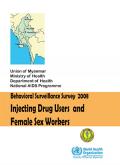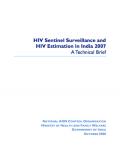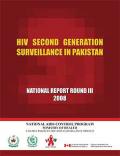Publications on People Who Inject Drugs (PWID)
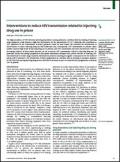
Resource | Reviews and Snapshots,
The high prevalence of HIV infection and drug dependence among prisoners, combined with the sharing of injecting drug equipment, make prisons a high-risk environment for the transmission of HIV. Ultimately, this contributes to HIV epidemics in the communities to which prisoners return on their release. We reviewed the eff ectiveness of interventions to reduce injecting drug use risk behaviours and, consequently, HIV transmission in prisons.
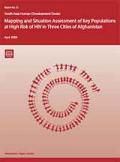
Resource | Publications,
As yet, little information is known about the size, distribution, and characteristics of IDU and sex worker sub-populations in Afghanistan. Therefore, the World Bank (WB) agreed with the Ministry of Public Health (MOPH) to contract with the University of Manitoba (UM) to conduct an assessment of these three key, high risk populations in three cities of Afghanistan: Mazār-i-Sharif, Jalalabad, and Kabul.
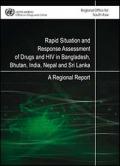
Resource | Publications,
Injecting drug use (opioids and pharmaceuticals) and HIV associated with injecting drug users (IDUs), has diffused rapidly in the South Asian region. Further, the sexual transmission of HIV from the IDUs to their non-injecting sexual partners has been established. Developing appropriate responses to this emerging problem requires a rapid situation and response assessment (RSRA) of drug users and their regular sexual partners.
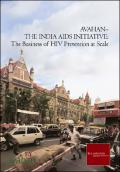
Resource | Publications,
In 2003 the Bill & Melinda Gates Foundation began its large HIV prevention program, the India AIDS Initiative, later called Avahan, to curtail the spread of HIV in India. At the time, there was an understandable sense of urgency about the rising prevalence of HIV in the world's second most populous country.
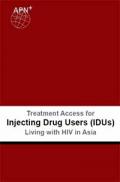
Resource | Publications,
This study examined the experience of PLHIV with linkages to PLHIV support organizations and services in areas of HIV counselling and testing, ART adherence, treatment of opportunistic infections (OIs) and healthcare providers’ (HCPs) attitude toward the targeted marginalized groups. This brief focuses on the findings in relation to IDUs living with HIV.
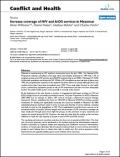
Resource | Publications,
By the beginning of the new decade, a number of organisations had begun working on HIV and AIDS, though not yet in a formally coordinated manner. The Joint Programme on AIDS in Myanmar 2003–2005 was an attempt to deliver HIV services through a planned and agreed strategic framework.






